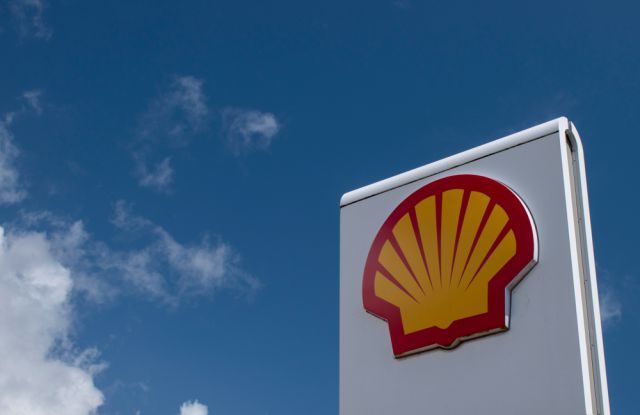
In terms of its financial statements last year, Shell reported adjusted earnings of $28.3 billion in 2023, down 29% compared to $39.9 billion in 2022. (Source: Shutterstock)
Venture Global LNG’s inability to fulfill offtake commitments and U.S. President Joe Biden’s recent decision to pause approvals of new U.S. liquefaction plants have raised questions about the reliability of the American LNG sector, according to Shell Plc’s CEO Wael Sawan.
The executive said Feb. 1 during the company’s fourth quarter 2023 conference call with analysts that legal proceedings continue regarding withheld LNG cargos between Venture Global and Shell, as well as other counterparts.
“I won't get into the details of the legal proceedings,” Sawan said. “Suffice it to say that we have pulled on the lever of arbitration that exists for us and continue to have the required discussions to be able to fundamentally point out that this is not just an issue between two counterparts.”
Venture Global fired back on Feb. 5, saying that Shell is being untruthful.
“Shell’s statement is false, and they know it is false,” Venture Global spokeswoman Shaylyn Hynes told Hart Energy via email. “The breathless public relations campaign they are waging reflects not only the complete lack of merits of their claims, but also their disappointment with the initial results of the arbitration they commenced,” Hynes said.
Sawan said the legal process started to undermine confidence in the reliability of U.S. LNG.
“With the recent announcement of the pause by the government, by the U.S. administration, [it] just continues all to erode that confidence in the longer-term potential of U.S. LNG, which is a real shame, I think, given the potential it has,” Sawan said.
The U.S. Federal Energy Regulatory Commission (FERC)—which has jurisdiction over the siting, construction and operation of LNG export facilities in the U.S.—reported that 18 projects worth 32 Bcf/d of export capacity have obtained approval but are yet to be built.
RELATED
Freeport LNG Down One Train After Texas Freeze
Financial results in 2023
In terms of its financial statements last year, Shell reported adjusted earnings of $28.3 billion in 2023, down 29% compared to $39.9 billion in 2022, due to “lower realized oil and gas prices, lower volumes and lower refining margins, partly offset by higher LNG trading and optimization margins and higher marketing margins,” the company said.
“The most significant contribution in the short term comes from focusing on where we play, which are essentially portfolio choices,” Sawan said during the webcast. “And at the same time, we are emphasizing a bottom-up focus to create a leaner, more agile organization that delivers more value.
Cash flow from operations was $54.2 billion in 2023, down 21% compared to $68.4 billion in 2022.
Shell returned $23 billion to its shareholders in 2023, which represented an excess of 40% of cash flow from operations as part of its progressive dividend policy and is increasing its dividend by 4%, taking the total increase over the last 12 months to around 20%, according to Sawan.
Shell also plans to start a $3.5 billion buyback program to be completed by May 2, CFO Sinead Gorman said during the webcast.
Shell’s net debt reached $43.5 billion at the end of 2023, down $1.3 billion compared to 2022.
“Shell expects to stick to its plans laid out during the Capital Markets Day last year, focusing on portfolio simplification and de-bureaucratization,” Wells Fargo’s Senior Energy Analyst Roger Read wrote Feb. 1 in a research report.
“As part of this process, Shell indicated the attractiveness of pursuing smaller but more replicable projects versus mega projects and/or expensive inorganic growth. Shell retains a positive outlook on the LNG market, viewing upcoming supply as more than balanced by increasing demand, placing Shell's LNG portfolio in an advantaged position,” according to Read.
Cash capex of $22 billion-$25 billion in 2024, 2025
Shell expects its cash capex to come in between $22 billion-$25 billion in 2024 and 2025 as part of its disciplined investment strategy, which includes maintaining a strong balance sheet and enhanced shareholder distributions.
“As we enter 2024, we are continuing to simplify our organization with a focus on delivering more value with less emissions,” Sawan was quoted as saying in the company’s year-end 2023 press release.
Shell’s capex was $24.4 billion in 2023 and at the lower end of its $23 billion-$27 billion range. Capex was split between oil, oil products and others at $12.6 billion; LNG gas and power marketing and trading ($4 billion); low-carbon energy solutions ($5.6 billion); and non-energy products ($2.3 billion).
As part of the energy transition Shell aims to dedicate $10 billion-$15 billion in capex between 2023-2025 on low-carbon energy solutions, the company said.
“Our preliminary results show that we have further reduced our Scope 1 and 2 emissions in 2023. We are only halfway through the timeline to our 2030 target, yet we have already achieved more than 60% of the reductions needed to reach the target,” according to Sawan.
Recommended Reading
Montana Renewables Closes $1.44B DOE Loan for Facility Expansion
2025-01-13 - The expansion project will lift annual production capacity to about 300 million gallons of sustainable aviation fuel (SAF) and 330 million gallons of combined SAF and renewable diesel.
Equigas, CO2Meter to Partner in Offering Gaslab Detection Devices
2025-02-14 - The devices are used in industrial operations to monitor gas leaks and maintain air quality and safety compliance.
ChampionX’s Aerial Optical Gas Imaging Platform Secures EPA Approval
2025-03-05 - ChampionX Corp.’s aerial optical gas imaging platform combines optical technology with a gimbal system to detect and locate methane leaks.
Baker Hughes, Woodside Partner to Scale Net Power Platform
2025-03-06 - Net Power’s platform uses natural gas to generate power while capturing nearly all CO2 emissions, Baker Hughes said in a news release.
Comments
Add new comment
This conversation is moderated according to Hart Energy community rules. Please read the rules before joining the discussion. If you’re experiencing any technical problems, please contact our customer care team.





